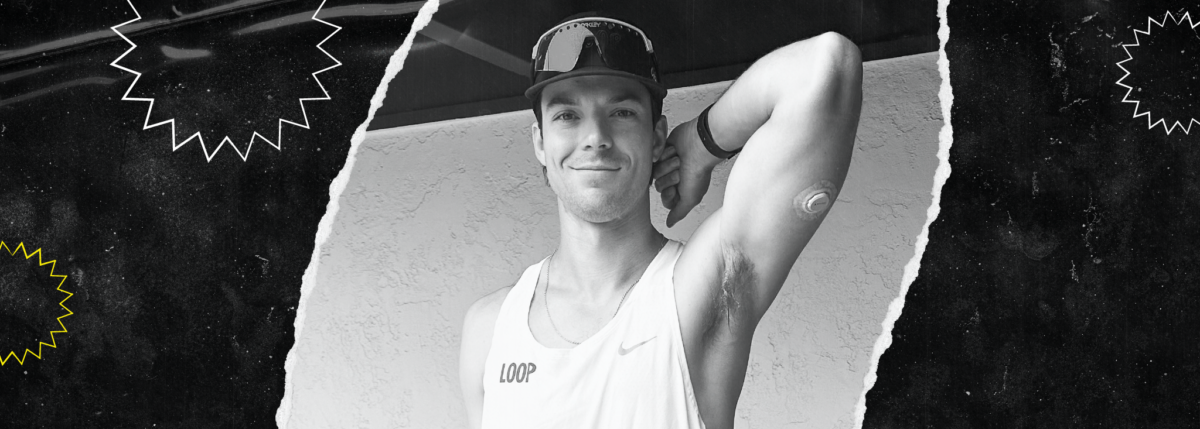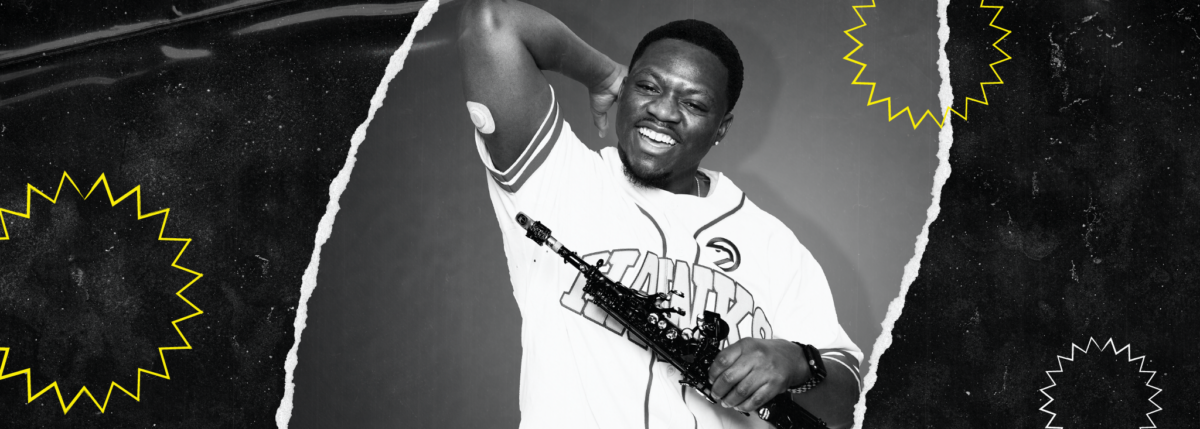My Diagnosis Denial
Written by: Theresa Bering
7 minute read
February 26, 2018
I can't see well; everything is blurry. Why can't I see well? I remember this happening to my sister before she was diagnosed. But this can't be the same thing. My vision is bad because it's always been bad. I've needed glasses since I was 5. It's just gotten worse because I'm in front of a computer screen all week. That must be it.
December
I can’t see well. Everything is blurry. Why can’t I see well? I remember this happening to my sister before she was diagnosed. But this can’t be the same thing. My vision is bad because it’s always been bad. I’ve needed glasses since I was 5 years old. It’s just gotten worse because I spend all week staring at a computer screen. That must be it. That has to be it. I don’t make an appointment to see the ophthalmologist.
January
I’m so thirsty and I’m scared because this isn’t normal thirst. This isn’t I’ve-just-run-a-marathon-and-need-a-drink thirst. This is I-will-collapse-if-I-don’t-get-water-soon thirst. Like, I’ve-been-without-water-for-months-in-the-desert thirst. I have a grey Camelback water bottle. It holds 100 mL. I have to refill it more than five times a day. I fixate on how thirsty I am and how much I need water to the point where I sometimes can’t think about anything else. I mention it to my mom. It has to be psychogenic, I say. It’s all in my mind; I am purely imagining this all-consuming thirst. That’s what I tell myself. And I try to believe myself. But I don’t.
February
I’m so tired all the time I have to nap in the afternoons when classes end. Probably because I keep waking up in the middle of the night to use the bathroom. I’m not getting enough sleep, that’s it. But why am I suddenly needing to use the bathroom during the night when I’ve never done this before? And why is it not just once but sometimes three times a night? Is my little bladder capable of holding that much? I learned about this in school. It’s called polyuria. There’s a disease known in particular for this. But that can’t be why.
March
My mom says if I’m really having these symptoms I should see my primary care provider (PCP). But I haven’t called. I’m in PA school. I’m training to be a healthcare provider. If someone came to me with these symptoms, I’d know what to do. I don’t follow my own advice. I don’t see my PCP.
I’m driving to visit my sister. She lives three hours away. My mind seems fuzzy and I feel weird. What is wrong with me? I know, but I won’t admit it. As always these days, my vision is blurry. I really should have seen the ophthalmologist. We had an exam this week and I stayed up late studying for that. I’m always tired lately. Maybe the fatigue from earlier is just catching up with me now. I’ve never liked long drives anyway. And I’m so hungry. For the past few months I’ve been eating all the time but actually losing weight. I can tell because my watch is loose around my wrist and my rings are in danger of falling off my skinny fingers. Losing weight but eating ice cream?! Is this a new super power? Do I get to wear a cape? I’m a young adult in her early 20s. The media is constantly telling me to be thinner, that it’s a good thing. I’m proud of the weight loss though I know I don’t exercise enough for it to be because of my health habits. Now the hunger is getting to me again. I stop at Wawa for one of my favorite treats: a mixture of hot chocolate and vanilla cappuccino. I savor the hot, sweet nectar as I drive. The caffeine will help my mind to focus. Then I won’t feel so weird.
I finally make it to my sister’s house. My 3-year-old niece is so excited to play with Aunt T, but I am tired again. Why didn’t that caffeine and sugar help? We sit down for a simple dinner: protein, a salad, another green vegetable and a small starch. Low carb because of my sister. I eat everything on my plate. I have the freedom to go back for more if I want it, so I do. Though I don’t know it, this is the last meal I will eat without thinking about carb counts or how these foods will affect my blood sugar.
I refill my glass of water for the third time since getting here less than an hour ago. My sister notices. Are you feeling alright, she asks. I’m fine. But I suspect my mother has told my sister about my other symptoms. Let’s just check your blood sugar, she suggests. If I take a while washing my hands will that delay reality? I sit at the table while my niece watches my sister put a test strip in the glucometer. “Mommy’s medicine,” she calls it. I hear the sound of a metal spring firing and a small needle pierces my finger tip. I tell myself it doesn’t hurt much and watch as a bubble of red appears on my smooth, un-callused skin. The greedy test strip accepts this offering and I watch as the numbers count down, 5 … 4 … 3 … Can this go any faster? Do I want it to? Or do I want to cherish this one last moment of not knowing?
“Result over 33.3 mmol/L600 mg/dL. Wash hands or test site. Repeat test with new strip.” We are all silent. I wash my hands again. Surely this will change the reading. I just didn’t wash them well enough before. The metal spring again, the sting of the lancet, a spot of blood, and the beep of the glucometer. “Over 33.3 mmol/L600 mg/dL, again. Follow medical advice immediately.” What is medical advice? Does crying count? But I’m not crying yet. I am in shock. This can’t be happening. My sister hugs me. I’m so sorry T, she says. She knows the life I must now lead because she has been doing it every day for the past two years. I just stare straight ahead. My niece has stopped dancing and wears a slight frown. She senses that something is wrong but doesn’t know what. My mother sits at the table, in denial like me. There could be another explanation though, she insists. My brother-in-law is solemn.
We’re studying emergency medicine in school right now. I had a lecture on diabetic ketoacidosis (DKA) just yesterday. It is a metabolic emergency. I don’t want to be in DKA. We gather coats as tears drip down our faces. Where are you going, my niece asks. Aunt T doesn’t feel well, we explain, and needs to go to the hospital to get medicine like mommy’s. She ponders this for a second then seems to accept our explanation. Medicine just like mommy’s. I receive a big hug from a little girl. Keep me updated, my brother-in-law says. We walk out the door at 10:00 at night. April Fools’, but this is real.
On the way to the ER I remember I have a paper due and email my teachers. May I have an extension on that deadline? We call my father, hours away in a different city. We’re going to the ER, I say, and tell him my blood sugar was over mmol/L600 mg/dL. Your sister’s was, he corrects. No, that was mine. You’re wrong, he tells me again. He can’t believe me. He won’t believe me. How can his two daughters both have this disease?
The intake nurse asks if I have any past medical history. I know this routine. I learned it in school. I’m supposed to tell her about all my diagnoses, any surgeries, if I’m up to date on my vaccinations. My mind is blank. I tell her I have no diagnoses, no surgeries. My sister laughs, yes you do, T. Oh yeah. My wisdom teeth were taken out in August of 2011. I had that heart condition and the corrective procedure in 2012. I broke my elbow in January of 2014. Never will I be irritated when my patients have difficulty remembering their health histories during acute hospital visits. Stress is a powerful thing.
I volunteered in an ER. It’s how I got medical experience for school. I love the action and the variety. I’m reminded of that as I walk through. But I don’t want to be the patient. A new nurse uses the hospital glucometer to check my blood sugar. It’s huge, bigger than the original Gameboy but not as fun. Over the next 48 hours I will come to dread that glucometer and lancing device. 39.3 mmol/L708 mg/dL, it reads. My sister texts her husband that we will be here for the night. No, I think. My contact solution and toothbrush are still in the car. I didn’t bring anything in with me because we aren’t supposed to be here long. I am convinced they will discharge me within three hours. Why are they making me put one of those hideous, loose hospital gowns on? Why are they putting an IV in?
My boyfriend, now fiancé, keeps texting me. He wanted to drive here tonight but I made him promise to wait until tomorrow. He will need a good night of sleep. We all will. Not all of us will get it. I am admitted to a room in the ICU and I am the healthiest person here. My cohabitants are mostly on ventilators. At least I am breathing independently.
My sister calls my brothers. I do not hear their conversations. I am adjusting to the blood pressure cuff inflating every so often, the hourly blood sugar checks, and figuring out how to maneuver to the bathroom while attached to so many machines. The nurse keeps offering to turn the heat up in the room but I don’t mind the temperature. I’m usually too cold. For once I am content with the room at 53°F.
Begrudgingly, my sister agrees to go home for the night. She has a little one to look out for and needs rest. My mother drives her back and for the first time I am alone to think. I am angry. What did I do to deserve this premature death sentence? This lifetime of blood sugar checks, endocrinology appointments and battling myself to achieve a good A1c. I have always wanted children. Will I be able to get pregnant, carry the pregnancy to term and successfully deliver? Will the baby die because my body can’t handle caring for two people? It can’t even care for me anymore.
In the following hours, an astute endocrinologist will recognize that my family history of thyroid disease puts me at risk for another autoimmune condition and will order thyroid antibodies even though my TSH and Free T4 are normal. Normal for the antibodies is 0; mine are in the thousands. Not only did my immune system attack my pancreas, rendering it nonfunctional, but it is actively destroying my thyroid. It is only a matter of time until that will stop working too.
Again, I will wonder if motherhood is still a possibility for me. My fingertips will feel as though I have slit them with razor blades and soaked them in lemon juice from all the blood sugar checks. My left arm, the one with the IV, will feel as though it is on fire from the potassium infusion my healthcare team ordered to correct just one of my many electrolyte imbalances. My boyfriend will arrive early in the morning with playing cards to keep me entertained, a notebook to keep track of instructions from the doctors, and a sense of comfort that will allow me to finally sleep well.
At night, the fast rate at which my blood sugar drops will make my body feel like it is being annihilated from the inside out. It will be the first time I experience anything like a low blood sugar. The evening I’m discharged from the hospital, the financial reality of living with a chronic disease will weigh on me when my mom picks up the life-saving prescriptions I need from the pharmacy and the bill is over $1,000. And that night, I will go to bed without any machines monitoring my vital signs. For the first time, I will wonder if I will wake up in the morning.
But I don’t know any of that yet. For now, I just lay in my hospital bed and allow myself to cry.
 Looking for someone who understands? Join the Beyond Type 1 App to find a community of support where you can get your questions answered.
Looking for someone who understands? Join the Beyond Type 1 App to find a community of support where you can get your questions answered.

Author
Theresa Bering
Theresa was diagnosed with type 1 diabetes in March of 2016 at age 23. Since then, she has found a passion advocating for fellow type 1 diabetics (T1Ds) and promoting awareness and understanding regarding this chronic disease. As a physician assistant student, Theresa has a unique opportunity to be both a patient and healthcare provider. When she is not studying for school, Theresa enjoys traveling, playing with her dogs, reading about history, spending time with family and eating ice cream from small Pennsylvania creameries.
Related Resources
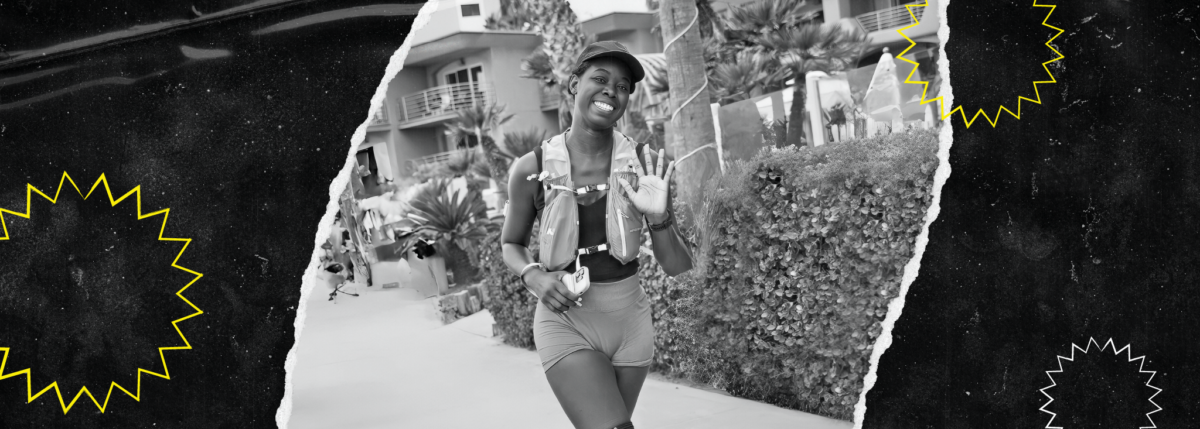
Danica Collins not only prepared for one of the most challenging physical events of her...
Read more
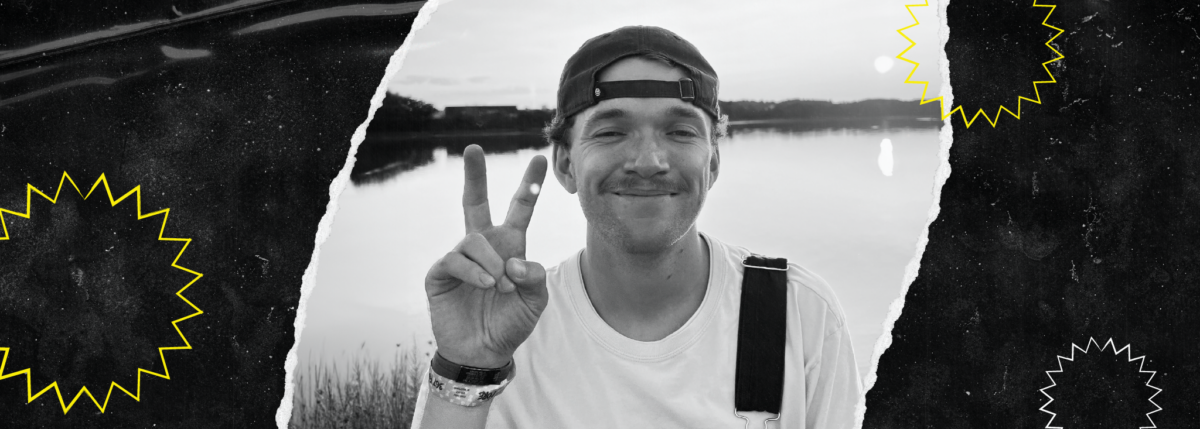
Beyond Type 1 is spotlighting inspiring athletes with type 1 diabetes as they prepare for...
Read more
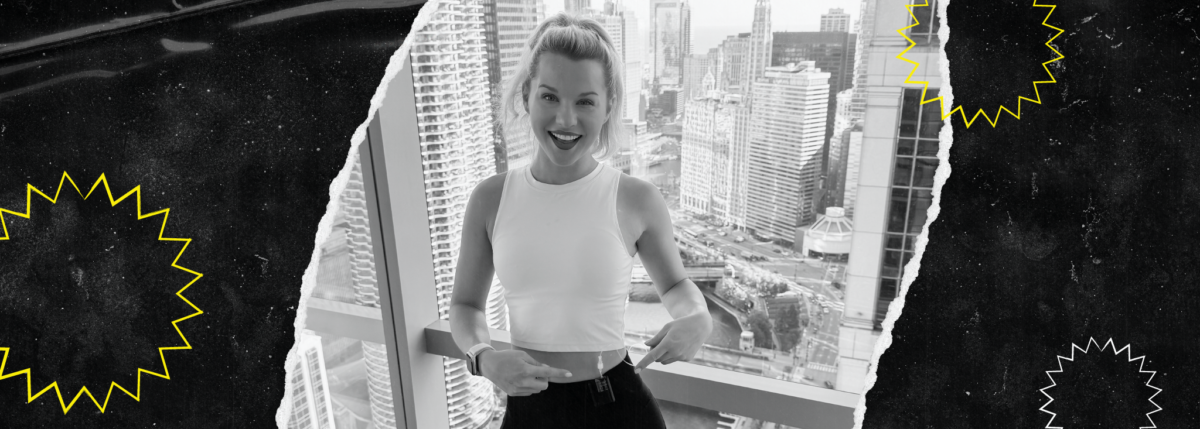
On November 3, 2024, Taylor Rindfleisch of Chicago laced up her running shoes for the...
Read more
